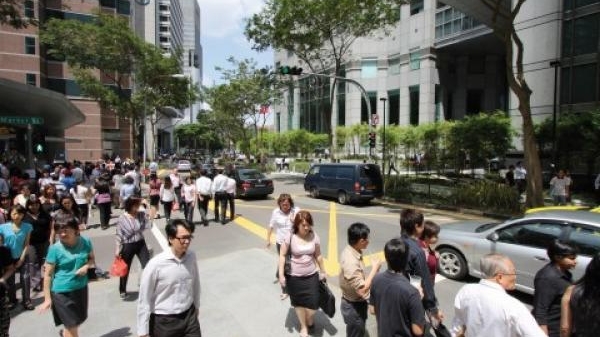
How will the 2022 budget benefit Singapore's position as Asia's carbon trading hub?
The $45/ton CO2e carbon tax rate will be above the current global median.
New climate change policies revealed during last week’s Singapore budget announcement were described by OCBC Treasury Research as “strong, ambitious, and for the better.”
Read more: Singapore Budget 2022: GST hike delayed, carbon tax raised
OCBC Treasury Research enumerated several factors that will aid the country’s position as the leading carbon trading hub in Asia.
The increases in taxes were beyond expectations, as the $25/ton CO2e tax rate, beginning 2024, would be the highest in Asia. This would overtake South Korea’s pole position of $22/ton CO2e.
By 2026, Singapore’s carbon tax rate of $45/ton CO2e would position itself above the current global median carbon tax rate of $32/ton CO2e. Also, the goal of carbon tax rate of $45/ton CO2e would also be consistent with the carbon price corridor set by the World Bank’s 2017 High-Level Commission of $54 to $108/ton CO2e.
"Assuming a mid-point carbon tax rate of $65/ton CO2e by 2030, only a handful of countries at present can claim to have a higher carbon tax rate [and can claim boasting rights to be in this carbon price corridor]—France, Norway, Finland, Liechtenstein, Switzerland, and Sweden," Howie Lee, OCBC Bank's economist said.
According to the OCBC, the increase in carbon tax signifies an attempt by Singapore to tackle global warming.
Despite these benefits, however, a carbon tax rate could also result in higher consumer prices locally.
Read more: Here are the taxes that will increase under the proposed 2022 budget
“We argue that even without the higher set of carbon taxes domestically, the world is set to face higher costs of production from decarbonisation in the medium term—this is a price the world has to pay if it wishes to stave off an existential crisis. Additionally, Singapore imports most of its raw necessities, ranging from energy to food and water—it would appear the carbon policies of these commodity origins would influence our cost of imports more than our carbon tax rates. In any case, we believe that the high costs of decarbonisation would only apply to the medium term—in the long run, the high costs of production would lead to the discovery of more price-competitive green alternatives,” commented Lee.
To recap, the three main changes pertaining to Singapore’s climate policies after the Budget 2022 announcement include an updated net-zero emissions goal, raising of domestic carbon tax, and allowance for entities to use international carbon offset credits to reduce carbon tax liabilities by up to 5%.
























 Advertise
Advertise






